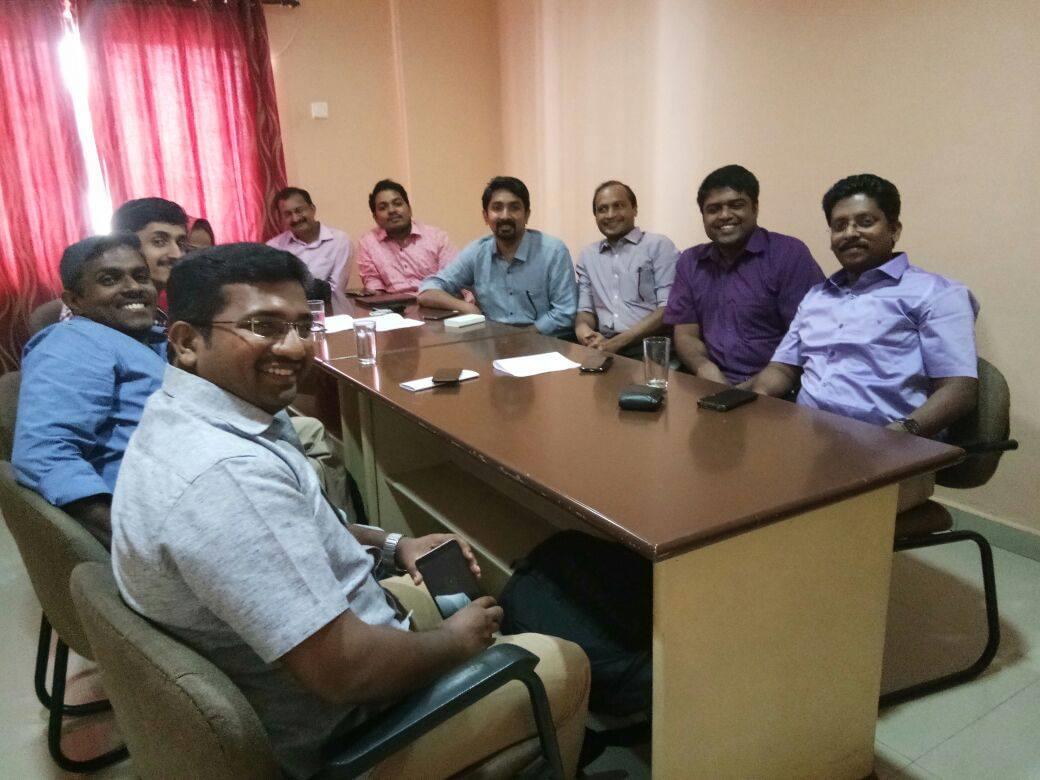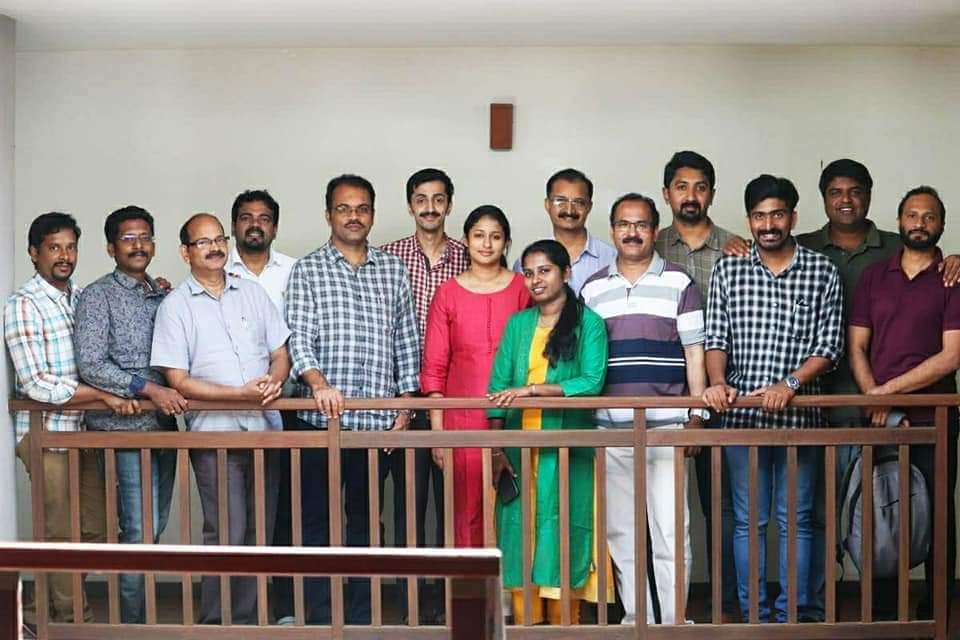New Delhi: “When people got familiar with the current COVID-19 scenarios, what are the types of messages that flooded our social media or WhatsApp? Some shared natural remedies like eating garlic as a cure to the disease while some shared how drinking alcohol or spraying it on our body can kill the virus. Not just these, there were hundreds of remedies floating on social media. Isn’t it,” asked Jithin T Joseph, co-founder of a unique platform called Info Clinic, a Facebook page that has been set to counter false information, myths, and superstitions with regards to health, diseases, and its treatment. The initiative is spearheaded by a team of doctors from various fields in Kerala who want to put a stop at all such fake news or myths related to health and diseases and guide the common masses with true information.

The initiative started with a team of five doctors spearheading Info Clinic and now the team has more than 38 doctors all working to debunk the common health and disease myths taking rounds on social media
What Led To The Birth Of Info Clinic Initiative In Kerala
Talking about the idea and what prompted the birth of Info Clinic in Kerala back in 2016, Jithin T Joseph adds,
At that point in time, the state was going through diphtheria outbreak and on the other hand, social media was growing so much that it had become a daily source of gaining news for the masses. We saw there was a lot of misinformation about the outbreak and its remedies that were circulating. A state like Kerala, which has the highest literacy rate was also at the receiving end of the harms that are caused due to fake news or misleading information. Percentage of vaccinations for diphtheria came down, which was supposed to be a legit cure. At that point, we were very disappointed as we saw people believing the remedies circulating on social media as a cure and not taking vaccinations. We decided to write an article about the disease and its treatment and that’s how the idea of starting Info Clinic was mooted. Soon, we decided to make Info Clinic a platform where we can publish all such articles and educate the masses about the right things when it comes to health issues, diseases and its treatment.
It all started with a team of five doctors spearheading Info Clinic, a Facebook page, four years down the line, it has now become a team of 38 specialist doctors, from both public and private hospitals, who works only on spreading right knowledge and information about major disease outbreaks or pandemics like the one which the world is undergoing currently – coronavirus. Jithin T Joseph said,
What binds us all together is our mutual interest about health issues and diseases, we have more than 1 lakh people who follow us on our social media, moreover, we have a dedicated website where we publish all our findings, research and knowledge. For now, the initiative is limited to the state of Kerala, but we do try and convert important articles in English so that more and more people can get aware. Till now, we have written more than 350 plus articles in Malayalam and English language.
Debunking Myths In The Time Of Coronavirus
Further talking about the current pandemic – coronavirus and how big the problem of myths, conspiracy theories, fake news around it was in Kerala, which is known as one of the better performers in dealing with the crisis, Mr Joseph said that in Kerala as well the problem of misinformation was huge. Highlighting what went right with Kerala when it comes to coronavirus, he said,
“But what the state did differently was that it started to put out all the information related to the pandemic out there on social media – be it government accounts or health minister. Everyone in the state was trying to make people aware of the situation by simply putting out facts. That really helped the state cope up well with the pandemic.
Highlighting the kinds of misinformation Info Clinic has dealt in the past when it comes to coronavirus outbreak, Mr Joseph said,
The list is never-ending. I remember people posting queries about things like if coronavirus will go away by putting a sanitiser with alcohol content in it then can drinking alcohol make them COVID-19 resistant or if they take a hot water bath, they will be protected from the virus. There were myths about yoga and coronavirus, people thought those who perform yoga are less likely to get infected with the virus. There were also questions on the use of spraying disinfectants on one’s body or surfaces, but in medical terms, it was not an effective cure for COVID-19.
In Kerala, disinfectant booths were installed and there were cases in recent past that some of the vehicles have caught fire after the disinfectant was sprayed on them because of the alcohol content. Sharing an example of this incident, Mr Joseph added,
There was a lot of discussion around it and we wrote an article on the same topic, it gained a lot of eyes and after that even the World Health Organisation passed the guideline saying that the use of disinfectant is not the solution.
Stressing on the point that controlling information that is misleading or fake on social media is very tough, Mr Joseph said,
Social Media is a platform where anyone can share anything. Now, today, if I get a WhatsApp forward saying eating garlic can cure COVID-19 and if I decide to post it further – I will be misleading 500 people who follow me on a certain platform. Now, even if one of them passes it on to their group, it will affect more people and the count soon will be endless. That’s how difficult it is to control misinformation being passed on various platforms. Most of the questions and misinformation about coronavirus which we had to deal with in recent times were related to its cure. As it is a new deadly virus and everybody is looking for the information that can protect them, so most of the people end up believing the random misinformation that is passed and that’s where Info Clinic comes in picture. Daily, we try and come up with some or the other article that tries to debunk such myths.
Also Read: Kerala Fights COVID-19: ‘Triple Lockdown’ In Thiruvananthapuram, Here’s All You Need To Know

Info Clinic was kick-started in 2016 as a Facebook Page, now the initiative also has a dedicated website where they post articles on health, diseases and its treatment
Highlighting about the learnings and challenges of an initiative like an Info Clinic, Mr Joseph signed off by saying,
Over the years, we have realised, misinformation that is passed on social media is the biggest threat to the society in terms of the health care system. When we started back in 2016, we never thought we will grow like this and help so many people by passing on the right knowledge. Whereas, when we talk about the challenges, one of the biggest threats is the reach of social media, the way information spreads via this medium is uncontrollable. Currently, anyone and everyone is sharing something or the other related to the diseases, so the fake news that we call in the health and disease sector is spreading like a wildfire. Wish there can be a way in the future to control this. Until then, we all need to be very very careful that we don’t pass on things which we are not sure of until it is backed with voices of experts and doctors. We need to stop learning things from what we now call as WhatsApp University. Let’s all be responsible and share the information wisely.
Also Read: Meet Kerala’s Coronavirus Warriors Who Are Tracking Thousands In Quarantine Everyday
NDTV – Dettol Banega Swasth India campaign is an extension of the five-year-old Banega Swachh India initiative helmed by Campaign Ambassador Amitabh Bachchan. It aims to spread awareness about critical health issues facing the country. In wake of the current COVID-19 pandemic, the need for WASH (Water, Sanitation and Hygiene) is reaffirmed as handwashing is one of the ways to prevent Coronavirus infection and other diseases. The campaign highlights the importance of nutrition and healthcare for women and children to prevent maternal and child mortality, fight malnutrition, stunting, wasting, anaemia and disease prevention through vaccines. Importance of programmes like Public Distribution System (PDS), Mid-day Meal Scheme, POSHAN Abhiyan and the role of Aganwadis and ASHA workers are also covered. Only a Swachh or clean India where toilets are used and open defecation free (ODF) status achieved as part of the Swachh Bharat Abhiyan launched by Prime Minister Narendra Modi in 2014, can eradicate diseases like diahorrea and become a Swasth or healthy India. The campaign will continue to cover issues like air pollution, waste management, plastic ban, manual scavenging and sanitation workers and menstrual hygiene.
[corona_data_new]



























